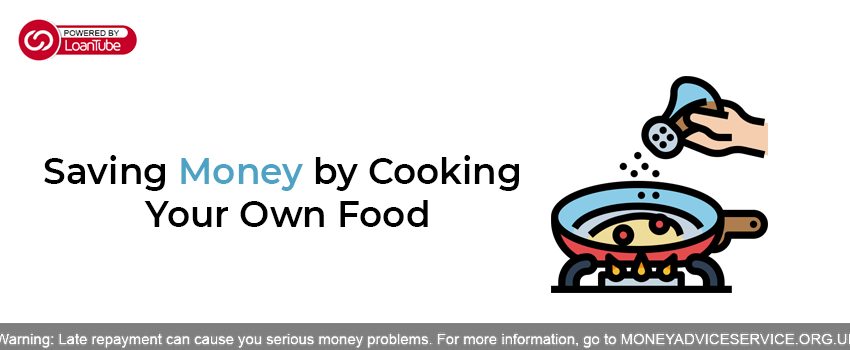When you start saving money, you would instinctively start by refraining from takeouts, reducing your alcohol consumption or using your bike to get to work. These are ‘starter packs’ that lay the foundation of a change in your lifestyle.
While these changes are small, they help you develop a rather responsible perspective towards life. Plus, the more changes you adopt, the more likely you are to fulfil your savings goal. Regardless of the magnitude of change, the key to success is taking the first step.
Are you motivated to accomplish your savings goal this year? Here’s the simplest and most personal space that you can start with when saving money – your kitchen. Learn these simple tricks to save money while cooking and enjoy your meals without burning a hole in your pocket.
Tricks to save money when cooking
Whip up a shopping list in advance
Using ingredients you already have, make a recipe plan for the week and make a shopping list if you need it. Avoid shopping when you are hungry. The possibility of spending more is higher when hungry shoppers shop for unhealthy foods. This includes high-fat and sugary snacks.
Don’t waste food
Every month, families with children toss away almost £60 worth of good food on an average. Make sure that you only purchase food that you’ll eat. You should plan your meals so that every ingredient on your list is used. Don’t throw away any unused food. Freeze it. Boxes and bags for storing food will come in handy.
If your leftovers aren’t stale, eat them for lunch
Serve your evening meal with extra portions so that you will have leftovers for lunch the next day. In the event there are leftovers, they can be frozen. Soon enough, your freezer will be stocked with homemade ready meals.
Add pulses to your meal
Some of the cheapest groceries on the supermarket shelf are pulses, such as beans, lentils, and peas. You can count these pulses toward your 5 A Day because they are low in calories, fat, and fat substitutes. In some dishes, they can replace some of the chicken or meat. For example, kidney beans could be used in chilli con carne or chickpeas could be used in a chicken curry.
Start cooking your meals from scratch
Cut back on takeaways to save money. It is cheaper and healthier to prepare and cook your own meals rather than get take-out or buy ready meals.
Curb the urge to impulse buy
You may want to trim down your regular shopping basket if it includes fizzy drinks, crisps, snack bars, biscuits, and cakes. The majority of these are high in sugar and fat, so you will be doing your waistline and your bank account a favor. In addition, they contain large amounts of salt. Ask yourself if you could use cheaper and healthier alternatives, such as fruit juice and sparkling water instead of cola.
Steer clear of the ‘Buy One Get One Free’ offers
Discounts, such as buy-one-get-one-free deals, offer good value, but tread cautiously. Do not purchase items you do not require and will not use. Some examples are canned or frozen fruit and veg, as well as rice and pasta. Perishable goods are another way to save money at the end of the shopping day. Be careful not to let the item expire too soon after it is opened.
Grab the day end discounts
Fresh items are usually discounted by supermarkets in the evening. Nonetheless, with longer opening hours, it’s important to find the right time to take advantage of these deals. A reduction to clear shelves, if done right, can save you a lot of money. Although, you must make sure the item isn’t close to expiry.
Make your sauces, seasonings and dressings at home
Salad dressings, for example, are easily prepared yet cost a lot more when they are purchased from a store. It is quite economical to make your own seasonings and dressings. Salad dressings cost as much as £7 just for a small bottle. The money you saved on food could have been used elsewhere.
Avoid pre-cut vegetables and fruits
It may be convenient to have everything sliced and diced for you, but precut fruits and vegetables typically cost more and don’t stay fresh as long as their whole, uncut counterparts. Rather than buying pre-cut fruits and vegetables, choose whole ones. The extra minute or two will pay off in the long run for your wallet.
Sign up for store cards for discounts
Some supermarket chains also offer discount cards as well as brands of their own that reward customers for loyalty and provide members-only discounts on certain products. You can, for example, get sales prices on hundreds of Tesco products if you have a Tesco store card.
Conclusion
Inculcating the habit of cooking your own food every day will certainly save you a lot of money. Plus, smart grocery shopping and meal planning will be cherries on the cake. Small changes such as the ones that start in your kitchen will take you a long way.

